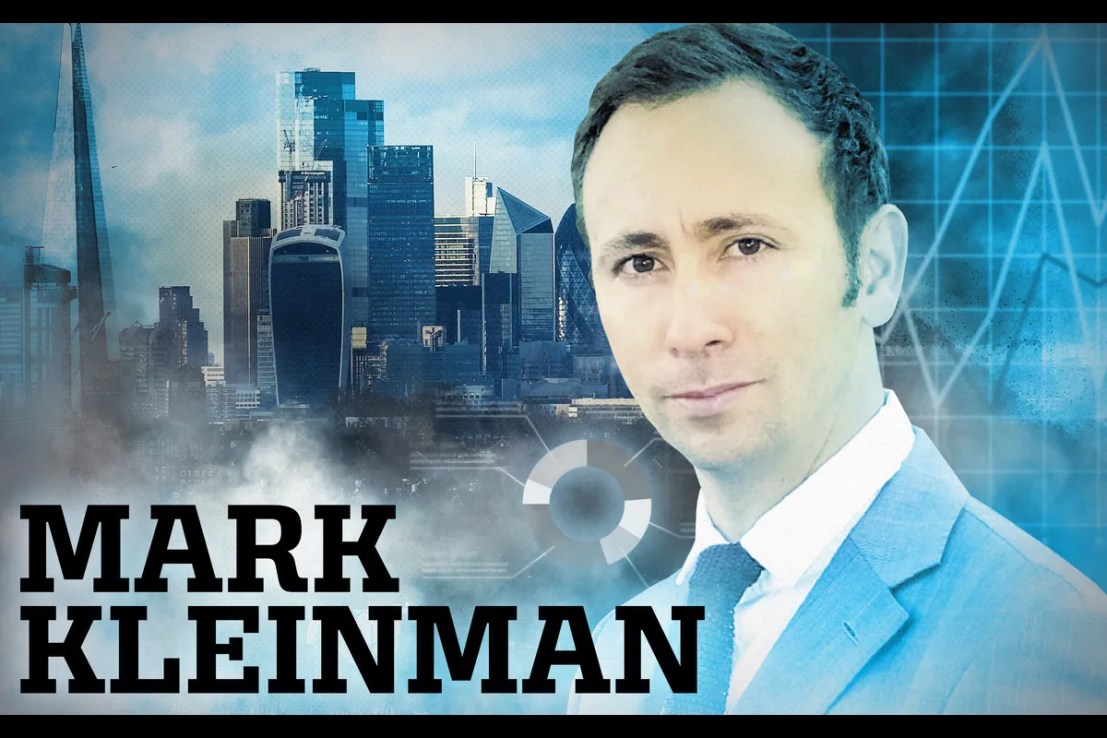Mark Kleinman is Sky News’ City Editor and the man who gets the Square Mile talking in his weekly City AM columnFintech Growth Fund’s journey ends in Octopus’s tentaclesIt could scarcely have augured more favourably. An investment fund whose creation was recommended by the City grandee Sir Ron Kalifa in his 2021 review of the UK fintech sector drew big-name advisers and investors by the armful. Among the former: Lord Hammond, former chancellor of the exchequer; Dame Jayne-Anne Gadhia, former CEO of Virgin Money; and Sir Charles Bowman, erstwhile lord mayor of London.
The latter camp included capital from Barclays, London Stock Exchange Group, Mastercard and NatWest. Peel Hunt was drafted in to advise on a fundraising with a first close earmarked for sometime in 2024. The plans have not come to fruition, amid an increasingly tough fundraising environment.

As I reported over Easter on Sky News, Octopus Investments is now in advanced talks to absorb the FGF through a deal that will see it taking on part of its investment team as well as tens of millions of pounds of investor commitments to date.That failure has triggered renewed soul-searching among those who question whether the UK is losing its edge as an investment destination in an area where it should be dominant.Alastair Lukies, the founding chairman of Innovate Finance and a key figure in Britain’s fintech sector, told me ahead of the opening of Fintech Week next Monday: “There is no question that the past decade has been bleak for fintech fundraising.
The indicators in 2016 were that we were on the cusp of huge growth and renewed belief in the UK’s ability to create standards-based industries such as fintech and healthtech. Just as fintech was born out of the trauma of the global financial crisis, the next wave of momentum will come from the lost decade we’ve just had.”Octopus, he added, would make “an excellent home for our much-needed fintech fund”.
Next week’s event has garnered support from the top of government, including the chancellor, Rachel Reeves. It’s no overstatement to say that it is a litmus test of Britain’s ability to carve out a distinctive space for itself in an increasingly competitive battle – both for fintechs to secure funding, and for Reeves’s government to create the economic framework which attracts the start-ups which rely on it.Splitting the Atom harder than turning a big profitAmong the ranks of Britain’s neobanks, Monzo, Starling and Revolut (recently awarded its UK banking licence after years of vocal frustration from founder Nik Storonsky) capture the bulk of media and investor attention.
Atom Bank, meanwhile, which was the first of the quartet to launch, in 2013, often slips under the radar.Part of that is a function of its stuttering valuation – having raised several hundred million pounds from investors including BBVA, the Spanish bank, Atom has proved stubbornly resistant to the kinds of valuation uplifts delivered by its rivals, all of which are now comfortably in unicorn territory.Atom Bank, meanwhile, is more widely known for its wholehearted embrace of the four-day working week, championed by chief executive Mark Mullen.
The Atom boss, though, now has a more pressing employment priority, in the form of recruiting a new finance chief for the lender – one who would play a crucial role in steering it onto the public markets or into the arms of a new owner.I understand that Andrew Marshall, who has been Atom’s chief financial officer for just three years, has decided to leave the company to pursue a career outside the banking industry.“We have built a genuinely customer-first bank; the UK’s highest rated on Trustpilot,” Marshall said in a statement.
“It will go on disrupting the status quo in UK banking and I’m proud to have been a part of that.”What the bank hasn’t yet done, though, is build a business in which sustainable profit growth has become an embedded characteristic. Marshall’s successor will be charged with helping to fix that – otherwise Atom Bank’s destiny as a neobank also-ran has little hope of changing.
Metric scale says it’s better to be lucky than goodIt’s better to be lucky than good, the old saying goes. Andrew Jones, the chief executive of LondonMetric Property, the quoted real estate group, might be both, but he clearly has a canny dealmaking knack. LondonMetric’s cash-and-shares offer for Urban Logistics, the under-fire REIT, could have ignited a bidding war amid a sector-wide feeding frenzy.
Jones might just have used up some of his luck, though. I hear that Tritax Big Box, the industrial and logistics warehouse operator, was among those desperate to get in on the action. Industry sources say Big Box hired investment bankers to explore the potential for a counterbid, and may have had discussions with Starwood Capital, the real estate-focused private equity firm, about a rival cash-and-stock bid.
Sources close to Big Box say, however, that having deliberated over the possibility, it now has no intention of making a firm offer for Urban Logistics.That’s bad news for Nigel Rich, Urban Logistics’ chairman, who along with the rest of his board will have hoped for a bidding war that would have further pushed up a valuation which had languished in recent months.That had drawn the attention of recently created activist fund Achilles, whose protagonists, Christopher Mills and Robert Naylor, will now be licking their lips at the prospect of an immediate windfall gain.
Jones’s LondonMetric looks like facing little competition to deliver it..
Top

Mark Kleinman: Fintech Growth Fund’s journey ends in Octopus’s tentacles

Mark Kleinman is Sky News’ City Editor and the man who gets the Square Mile talking in his weekly City AM column Fintech Growth Fund’s journey ends in Octopus’s tentacles It could scarcely have augured more favourably. An investment fund whose creation was recommended by the City grandee Sir Ron Kalifa in his 2021 review of the UK [...]











